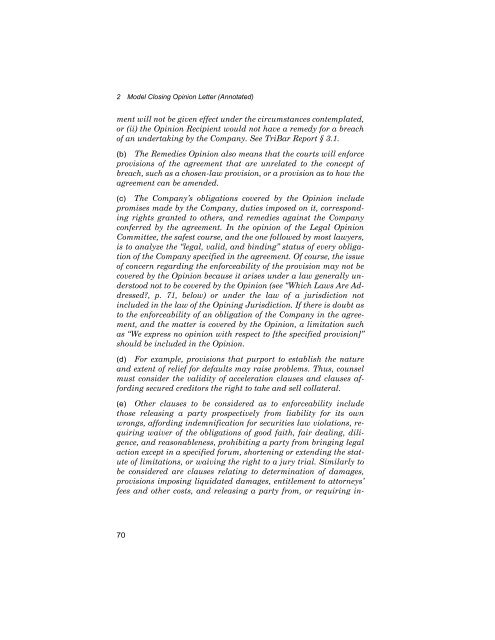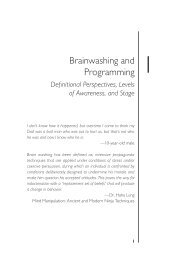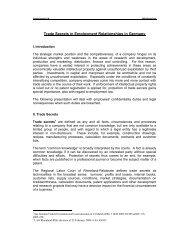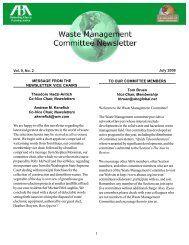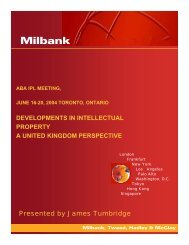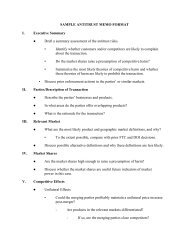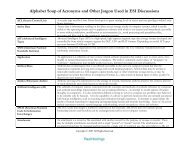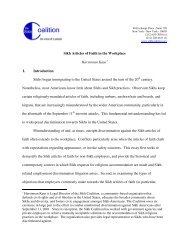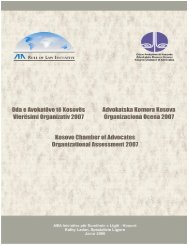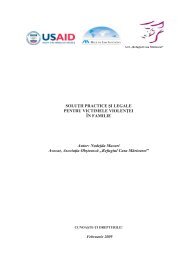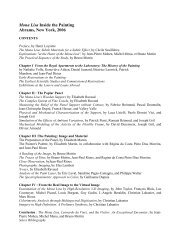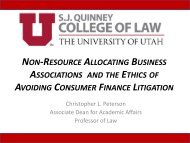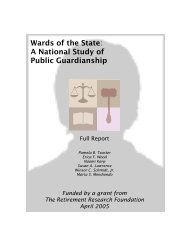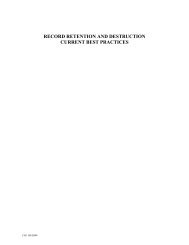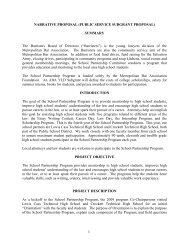Model Closing Opinion Letter (Annotated) - American Bar Association
Model Closing Opinion Letter (Annotated) - American Bar Association
Model Closing Opinion Letter (Annotated) - American Bar Association
You also want an ePaper? Increase the reach of your titles
YUMPU automatically turns print PDFs into web optimized ePapers that Google loves.
2 <strong>Model</strong> <strong>Closing</strong> <strong>Opinion</strong> <strong>Letter</strong> (<strong>Annotated</strong>)<br />
ment will not be given effect under the circumstances contemplated,<br />
or (ii) the <strong>Opinion</strong> Recipient would not have a remedy for a breach<br />
of an undertaking by the Company. See Tri<strong>Bar</strong> Report § 3.1.<br />
(b) The Remedies <strong>Opinion</strong> also means that the courts will enforce<br />
provisions of the agreement that are unrelated to the concept of<br />
breach, such as a chosen-law provision, or a provision as to how the<br />
agreement can be amended.<br />
(c) The Company’s obligations covered by the <strong>Opinion</strong> include<br />
promises made by the Company, duties imposed on it, corresponding<br />
rights granted to others, and remedies against the Company<br />
conferred by the agreement. In the opinion of the Legal <strong>Opinion</strong><br />
Committee, the safest course, and the one followed by most lawyers,<br />
is to analyze the “legal, valid, and binding” status of every obligation<br />
of the Company specified in the agreement. Of course, the issue<br />
of concern regarding the enforceability of the provision may not be<br />
covered by the <strong>Opinion</strong> because it arises under a law generally understood<br />
not to be covered by the <strong>Opinion</strong> (see “Which Laws Are Addressed?,<br />
p. 71, below) or under the law of a jurisdiction not<br />
included in the law of the Opining Jurisdiction. If there is doubt as<br />
to the enforceability of an obligation of the Company in the agreement,<br />
and the matter is covered by the <strong>Opinion</strong>, a limitation such<br />
as “We express no opinion with respect to [the specified provision]”<br />
should be included in the <strong>Opinion</strong>.<br />
(d) For example, provisions that purport to establish the nature<br />
and extent of relief for defaults may raise problems. Thus, counsel<br />
must consider the validity of acceleration clauses and clauses affording<br />
secured creditors the right to take and sell collateral.<br />
(e) Other clauses to be considered as to enforceability include<br />
those releasing a party prospectively from liability for its own<br />
wrongs, affording indemnification for securities law violations, requiring<br />
waiver of the obligations of good faith, fair dealing, diligence,<br />
and reasonableness, prohibiting a party from bringing legal<br />
action except in a specified forum, shortening or extending the statute<br />
of limitations, or waiving the right to a jury trial. Similarly to<br />
be considered are clauses relating to determination of damages,<br />
provisions imposing liquidated damages, entitlement to attorneys’<br />
fees and other costs, and releasing a party from, or requiring in-<br />
70


